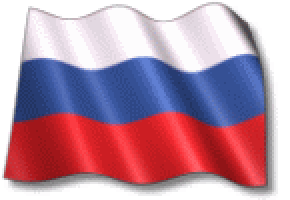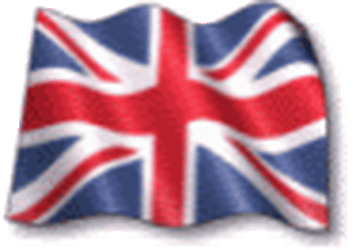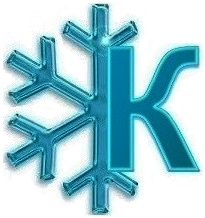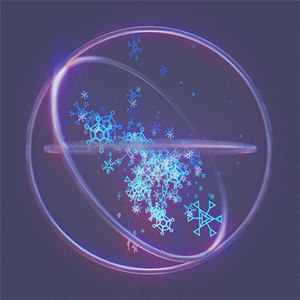 RU
RU  EN
EN CRYOMEDICINE CRYOMEDICINE  |




 : +7(916)525-61-42
: +7(916)525-61-42 : 5256142@mail.ru
: 5256142@mail.ru
 |
V.V.Korsun, E.Ya.Gatkin. Cryosurgical
method of treatment and
cryosurgery of superficial neoplasms:
A guide for doctors
– M.
2022 –
72 p. The book is devoted to the cryosurgical treatment method. The history of the method, the biophysical foundations and morphological changes occurring in tissues and organs that occur during cryosurgical treatment are considered. The book covers all sections of cryomedicine and explains the principles and distinctive features of the cryosurgical treatment method. Various types of this treatment method are considered in detail using both conventional cryosurgical devices used in outpatient settings, as well as using high technologies and in combination with other treatment methods. The cryosurgical treatment of superficial neoplasms of the main nosological units is considered in detail, with a demonstration of a large number of clinical cases from the personal experience of the authors of the book. The theoretical foundations and practical conclusions of this book are based on the work of many domestic and foreign clinicians, primarily the work of V.V. Shafranov, MD, Professor of the Department of Pediatric Surgery at the Russian National Research Medical University and Head of the Department of Pediatric Surgery. cryogenic treatment room GKB ¹60 Z.V. Kalmykova. All this makes the book very useful for surgeons, oncologists, dermatologists, cosmetologists, general practitioners and doctors of many other specialties who use cryogenic treatment methods in their practice.
|
 |
G.G.Prokhorov, A.M.Belyaev, D.G.Prokhorov. Fundamentals of clinical cryomedicine: «Book on demand» - St. Petersburg-M. 2017 - 608 p.
The book is aimed at doctors of all specialties and students. It provides a brief overview of the history of cryomedicine, the basics of cryobiology, thermophysics and crystallization processes in biological objects, cryopreservation and cryodestruction regimes, methods for general medical practice, and techniques for modern cryosurgical operations. Separate chapters are devoted to local and general aerocryotherapy, treatment of benign tumors in dermatology, urology, gynecology, neurosurgery, radical and palliative care of patients with various oncological diseases. The method and results of percutaneous puncture cryoablation of tumors using modern navigation and monitoring are described in detail. Organizational issues, medical equipment were considered, and samples of training programs for doctors in cryomedicine were attached.
|
 |
A.Sh.Revishvili, A.V.Zhao, D.A.Ionkina. Cryosurgery - M. "GEOTAR-Medicine". 2019 - 376 p.
Cryomedicine is gaining increasing popularity among practitioners all over the world. The fields of application of cryomedicine and cryosurgery primarily include pediatric surgery, cosmetology, urology, gynecology, neurosurgery, ophthalmology and, most importantly, oncology. Cryosurgery should currently be considered as one of the high-tech methods of treating a number of diseases, with a multidisciplinary approach that allows for maximum effect with a minimum number of complications. This guide is written by leading Russian experts in various fields of medicine, as well as foreign colleagues from China and Italy, and reflects the experience of the world's leading clinics in the field of cryosurgery. The publication is intended for a wide range of practicing doctors of various specialties.
|
 |
Nikolai N. Korpan. Basics of Cryosurgery. Springer-Verlag Wien. 2001 - 330 p.
Dedication I would like also more
specifically to dedicate this book to those in Austria, my second home, who ,
on my second start as a doctor and surgeon, had confidence in my professional
and scientific abilities and who have over the years continued to give me their
friendship and support. Further, I would like to
express my deep appreciation to all of my colleagues, the nurses, secretaries,
administration, and patients in the Vienna hospitals, especially the
Evangelical Hospital in Waehring, who have in one way or the other contributed
to this book.
|
 |
A.I.Paches, V.V.Shental, T.P.Ptukha, A.B.Rikberg, L.I.Trushkevich. Cryogenic method for the treatment of tumors of the head and neck - M. "Medicine". 1978 - 168 p.
The book outlines
and analyzes
the issues of the current state
and further
development of cryogenic treatment
methods in oncology.
The theoretical implications of using this
method are understood in
the light of data on
the biological and physical
effects of freezing on
tumor tissue
and experimental
studies to identify
optimal cryogenic exposure
regimes. The analysis
of the fundamental issues of cryogenic
therapeutic technology is given and the
main devices
for cryotherapy
are considered. The method and
technique of cryogenic treatment
for head
and neck
tumors are described in detail: the possibilities
of this method of treatment
in patients with malignant tumors
of the scalp, face, neck,
lips, tumors
of the oral mucosa, tongue
and upper
respiratory tract are consistently
described. Depending on
the location and prevalence
of the tumor, the features
of cryogenic treatment are indicated, as well as indications
and contraindications
for its
use. The great possibilities
of the cryogenic treatment method
are described.
|
 |
V.V.Shafranov, E.N.Borkhunova, A.V.Taganov, N.G.Korotky, V.A.Vissarionov, A.G.Stenko. Keloid scars: etiology, clinical, morphological, physical diagnosis and treatment by the microwave cryogenic method: A guide for doctors, Moscow, 2003, 2009 - 192 p.
The book is devoted to the treatment of keloid scars in children and adults by the microwave cryogenic method. The technique applied by the authors to 438 patients is original and pathogenetically sound and almost completely eliminates the recurrence of keloids. The paper presents the results of a morphological study of keloid scars, as well as the course of reparative skin regeneration after their treatment by the microwave cryogenic method. They allow us to reveal some features of the pathogenesis of keloids, to determine the mechanism of damage to keloid tissue after microwave cryodestruction and the nature of skin healing. For an objective assessment of the treatment results, the authors used data from clinical, morphological and physical studies. All this makes the book very useful for cosmetologists, pediatric and general surgeons, dermatologists and doctors of other specialties who are interested in the problems of using low temperatures and the microwave field in medicine.
|